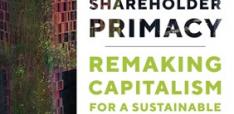The 1% Abroad Under FATCA
Karl Muth argues that FATCA’s ‘presumption of suspiciousness’ is driving wealthy Americans to extraordinary lengths.
In high-net-worth circles, the conversation has never been louder or more fashionable.
Use of “soft power” by the Bush and, more recently, Obama administrations to intimidate, harass, and detain people with substantial assets has been successful in that some people have turned over assets, admitted guilt, handed over records, and submitted testimony. Other people, though less cooperative or forthcoming as defendants, have been cooperative as witnesses and have outlined illegal schemes promoted by certain financial institutions and implicated other individuals within the ambit of the U.S. Attorney’s Office.
However, this push toward a more strict interpretation and enforcement of tax laws has had another effect: Talk of renouncing U.S. citizenship is common, constant, and loud in wealthy circles – louder than it has ever been in my lifetime of interacting with wealthy investors.
The increase in the level of surveillance by the U.S. government combined with the increase in the level of financial scrutiny wealthy Americans endure has caused people to take unusual measures. I know of one family, for instance, that refuses to keep any legal documents or financial spreadsheets on computers connected to the internet and has paper copies of documents moved by hire car rather than via email. They still reside in the same state where their fortune was earned a century ago.
Others have left altogether. A wealthy family I’ve known since I was in secondary school recently relocated the parents (who are in their sixties) to their yacht in the Caribbean and purchased citizenship for their children on the island of St. Kitts. The last time I spoke to the family’s matriarch, she mentioned there is “no higher priority” than renouncing citizenship and divorcing the family from any ties to the United States.
Just how many have left? Given the dynamics of the American wealth distribution (in which a single family’s expatriation often means tens or hundreds of millions of dollars of net worth exiting the country’s tax base permanently), individual departures are not a worry to the federal budget but should draw more attention from policymakers than they do. In the third quarter of 2014, 776 people renounced their citizenships (a substantial increase from 560 people in the third quarter of 2013).
In my conversations with families, many were surprised by the invasive and comprehensive nature of FATCA (the Foreign Account Tax Compliance Act), which has thrown many families into a frenzy as they face unpalatable consequences if they fail to disclose accounts and companies that have historically resided quietly abroad. The ability for these companies to remain quiet or mysterious has been severely damaged by FATCA, if one accepts the most conservative interpretation of the law.
The new disclosure rules went into effect July 1st and there is truly no other topic of conversation in some circles. In addition to moving accounts and family business operations around, distrust of banks seems at an all-time high, after the “betrayal” (this is the term usually used in these circles), which refers to the decision by Swiss bank UBS to hand over data for nearly 5,000 accounts (many of which were tied to wealthy U.S. families with questionable tax compliance).
As a result, more wealthy families have brought their tax, legal, and accounting services in-house. An acquaintance of mine who helps families set up so-called single family offices (offices that operate as consulting services firms but typically only have the members of a single wealthy family as clients) says business has never been better and that more American families are asking that their offices be set up overseas rather than in Chicago, New York, or San Francisco.
FATCA is to the financial world what the NSA’s spying programs were to the communications world. Under FATCA, 30% of all payments to non-disclosing or non-compliant foreign banks gets withheld by the U.S. and the U.S. is allowed to obtain data from 77,000 financial institutions and 80 governments about U.S. citizens’ transactions abroad. Historically, the “problem” from a prosecutorial standpoint (or the “positive” from a civil liberties standpoint) is that U.S. investigations of tax evasion have often been fruitless, expensive, and slow; FATCA allows the U.S. to gather information without having to prove anything about a given prospective defendant; it creates a “presumption of suspiciousness” (my words) that a person overseas is, by default, suspicious.
To me, this presumption of suspiciousness is outrageous.
The vast majority of transactions affected by FATCA at the individual level involve Americans living abroad, unsurprisingly. About six million Americans live outside the U.S. Many are among America’s most valuable workers. Because America is the only OECD member country that taxes income no matter where it is earned (and one of only three countries with such a comprehensive extraterritorial income capture regime, the other two being North Korea and Iran), America already benefits enormously from these hard-working people abroad. To presume that wealthy people living and working abroad are deserving of surveillance and suspicion is insulting and inappropriate. It exacerbates America’s already-apparent contemporary tendencies toward xenophobia, isolationism, and class warfare.
I have no doubt America has an expatriation problem. I have no doubt thousands more Americans will give up their passports (about 9,000 Americans gave up their passports over the last five years, many of them wealthy members of the so-called one percent). I have no doubt the cost of expatriation to the American tax base will increase. However, this is not a reason to pass laws that violate the privacy expectations – if not the privacy rights – of Americans who choose to reside elsewhere. It is not a reason to waste public resources scrutinizing transactions in Tokyo or deposits in Durban, hoping to find irregularities that are rarely present and almost never prosecuted. It is not a reason to harass some of America’s most valuable and important citizens.
Forcing the wealthy into hiding is not a solution and should not be seen as a policy success. The current set of policies contributes to distrust in government, enhances a perceived unfairness already present in the system, and does little to increase the tax revenues of the United States. Most people moving money internationally, owning companies abroad, and giving up their citizenships are doing so for valid reasons and are doing so legally. Treating an entire class (and you may interpret the word class to mean something socioeconomic or something else) like a bunch of criminals is an embarrassing posture for the United States to adopt and an unfortunate strategy for this President to support.


